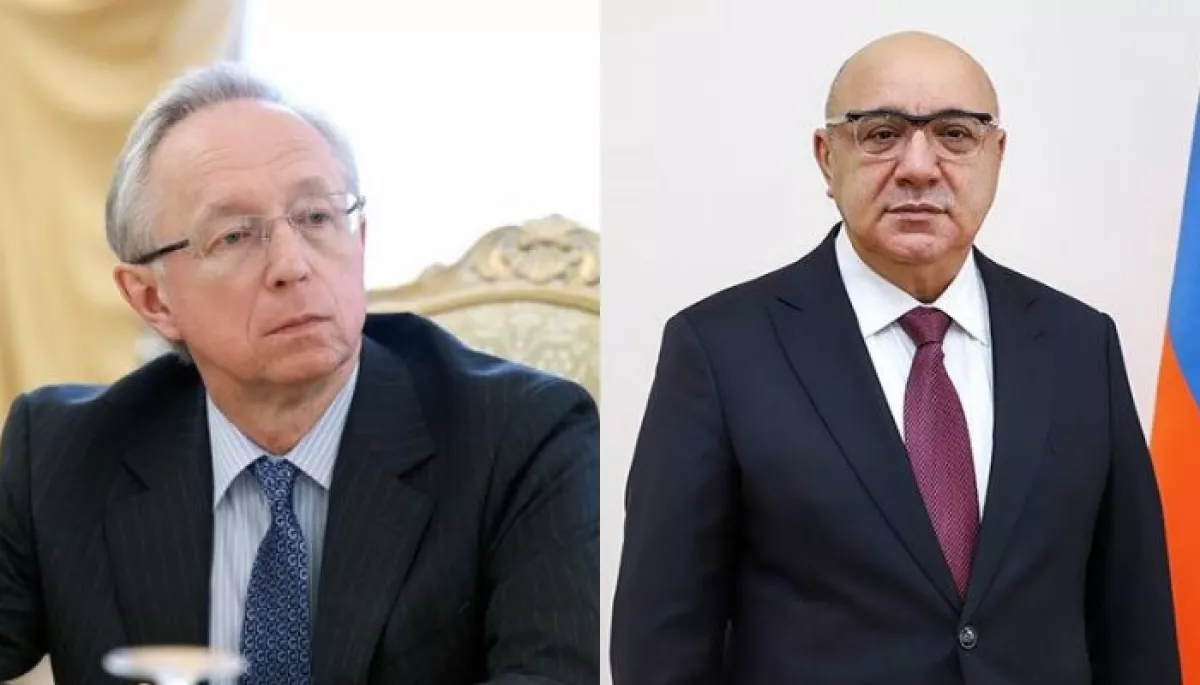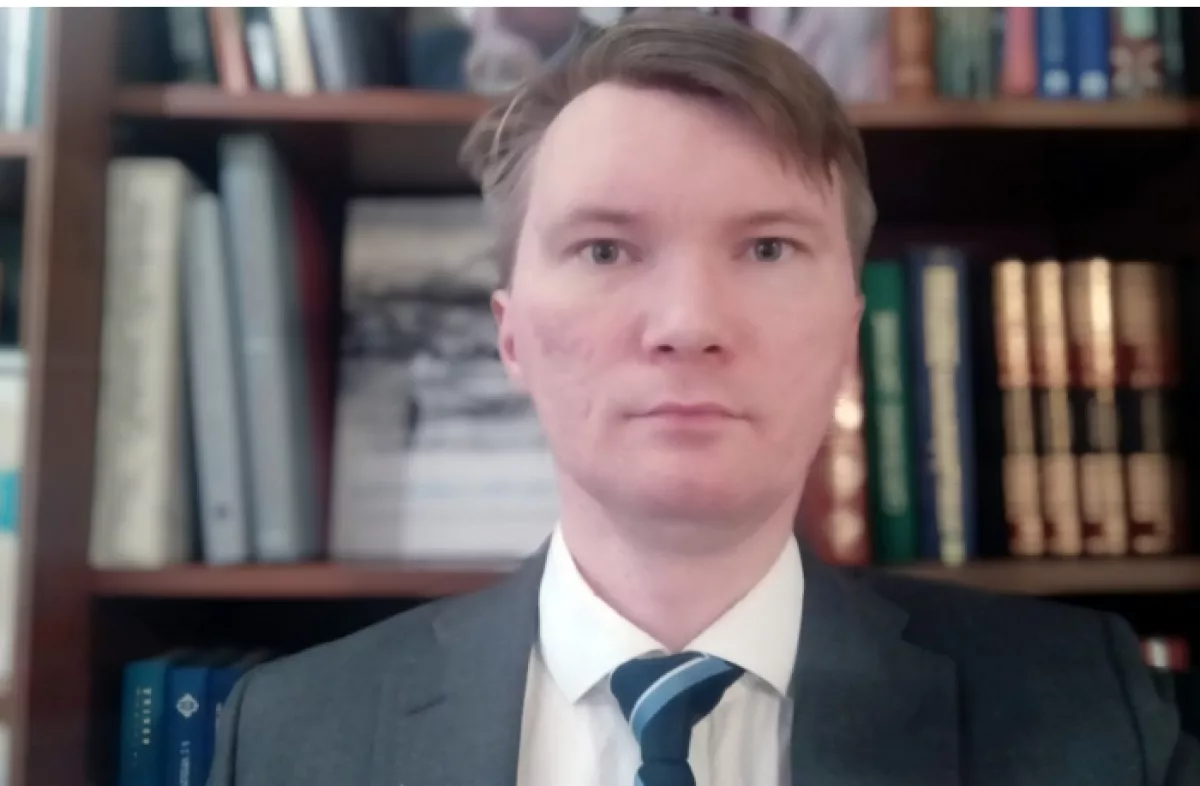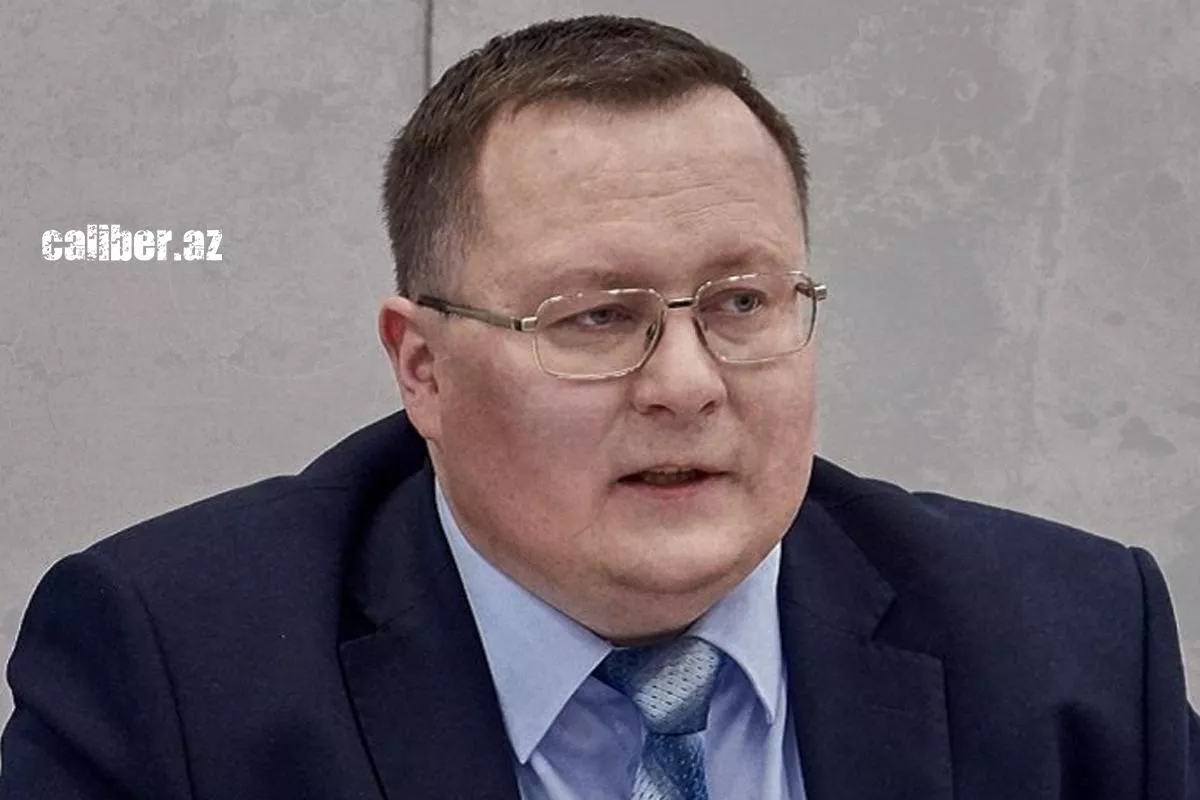Moscow warns Yerevan: Media conflict risks economic sanctions Expert opinions on Caliber.Az
Recently, the Armenian ambassador to the Russian Federation, Gurgen Arsenyan, was summoned to the Russian Ministry of Foreign Affairs, where he met with Deputy Foreign Minister Mikhail Galuzin.

According to Armenian media, citing their diplomatic sources, the conversation took place in a tense atmosphere. Arsenyan was told to convey to the Armenian leadership that if the republic’s authorities "follow the demands of the West" and exclude Russian state TV channels from the public digital multiplex, this could lead to "unpleasant surprises," including economic sanctions.
How real is the likelihood that Moscow will take such measures against Armenia? And what sanctions might the Kremlin impose on Yerevan? Russian political analysts answer these questions for Caliber.Az.

Andrey Petrov, Deputy General Director of the news agency Vestnik Kavkaza and Russian political analyst, believes that the current situation regarding the broadcast of Russian TV channels in Armenia reflects a deep political crisis and a dual agenda emerging both in Yerevan and Moscow.
“The issue is that those who previously used Russian channels solely for anti-Azerbaijani propaganda — lobbyists of the nationalist segment of the Armenian diaspora — are now, while continuing the same line, simultaneously opposing the current Armenian authorities. The forces behind them hope, by supporting nationalists such as Robert Kocharyan and Serzh Sargsyan, to achieve a change of power in Yerevan in the upcoming parliamentary elections,” the expert noted.
According to him, this transformation of rhetoric on Russian TV channels worries the Armenian authorities and creates a new motivation to ban their broadcasts: “They have a perfectly justified reason to shut down Russian channels because today their airwaves are literally filled with criticism directed at Pashinyan and his team. This concerns not only domestic politics but also an attempt to discredit the very concept of peaceful development promoted by the current leadership. I think everyone in the South Caucasus understands that the return to power of nationalists like Kocharyan and Sargsyan would mean a new escalation and preparation for war in the region,” Petrov stated.
He also noted that Moscow is aware of the seriousness of the changes in sentiment but continues to act according to the old script: “Although the Kremlin understands that the current motives of the Armenian authorities are related to internal security, the reaction remains the same. A few years ago, Pashinyan’s team also considered shutting down Russian TV channels.
At that time, this was perceived as an act of hostility because Russian channels did not broadcast anything negative about Armenia—in fact, the tone was friendly. But today, it looks like an attempt to defend against political attacks coming also from Moscow.”
Thus, the Armenian-Russian media conflict has fallen into a cycle of repetition, regardless of changed circumstances: “However, from Russia’s point of view, it does not see significant changes. Just as Pashinyan and his supporters wanted to cancel Russian channels before, they continue to strive for this now. Accordingly, the reaction will be the same — tough and persistent.”
The expert also emphasised that the current foreign policy environment only strengthens Moscow’s position:
“Right now, the Kremlin understands that Yerevan has failed to build stable ties with either Washington or Brussels. Under the Trump administration, the U.S. simply showed no interest in Armenia, and Brussels is unwilling to provide the level of financial aid Pashinyan requests. That leaves only Paris. However, Macron now seems to be trying to become the ruler of the entire world—at least in his own mind—grasping at all foreign policy directions, whether related to France or not, but Armenia apparently is not on that list. Against this backdrop, Russia feels that Yerevan has very little room left to manoeuvre.”
In his view, under these circumstances, the Kremlin sees opportunities to increase pressure in order to restore the previous format of relations: “Yerevan previously had limited ability to safely distance itself from Moscow, and now those options have become even fewer. Therefore, the Kremlin believes it can step up pressure to bring relations with Armenia back to their former course.
Hence the threats of possible economic sanctions,” the expert explained, noting that potential measures could include trade restrictions, including on key export products.

“If Armenia nevertheless decides to ban Russian television broadcasting, then most likely Russia will impose targeted restrictions on the supply of certain Armenian goods. This could include, for example, alcohol. Russia has already applied such measures against other countries with which relations have deteriorated, and it is not excluded that a similar scenario will be implemented here.
The beneficiaries in this case could be, say, Georgian alcohol producers—since a niche would open up in the market, and they could replace Armenian products. However, there is no question of Armenia leaving the Eurasian Economic Union (EAEU)—such a procedure is simply not provided for in the organisation’s charter. Besides, Yerevan is unlikely to agree to this,” said the political analyst.
The expert believes it would be wiser for Armenia to establish dialogue with Moscow rather than exacerbate the information confrontation.
“Instead of repeated attempts to ban Russian TV channels, Yerevan should work more closely with Moscow regarding the content broadcast on Russian channels.
It is necessary to push for changes in rhetoric. This especially concerns not just anti-Azerbaijani or anti-Armenian, but rather anti-Caucasian propaganda that we hear in some Russian talk shows. I want to emphasise that these sentiments and statements are not the official position of the Russian top leadership. However, they still appear on federal channels. This situation needs to change, and everyone interested in stable and peaceful relations between Russia and the South Caucasus should work on this,” concluded Petrov.

In turn, according to Russian Eurasia expert and international political analyst Alexander Razuvaev, Moscow has long considered Armenia an unfriendly country, and it was clear from the start that economic sanctions were only a matter of time.
“Russia can primarily close its market to Armenian goods, and Belarus may follow suit. I don’t know if other Eurasian Economic Union countries will join, but it is quite possible,” he noted.
The political analyst believes that Armenia’s image in the Russian media is currently unpopular, with particular attention on the pressure exerted on the Armenian Church.
“Today, it is impossible to talk about any privileges that Armenia used to receive, especially regarding energy supplies. Moreover, the Armenian economy has improved in recent years due to relocations of people who left Russia in the winter of 2022, but now people are leaving Armenia for Russia or other more attractive countries where wages are higher and treatment is better. At present, the attitude towards Russians in that country is not positive, and this is noticeable. I think economic sanctions against Armenia are a matter of time: as soon as Yerevan officially declares its intention to join the European Union, sanctions will be imposed. In principle, a similar situation once happened with Moldova, but it was not covered as extensively in the media,” Razuvaev concluded.








